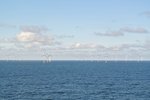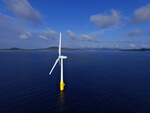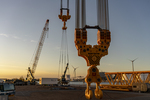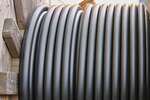News Release from windfair.net
Wind Industry Profile of
Norway Targets Floating Offshore Wind Farms
Although wind energy has grown strongly in Norway in recent years, it has so far played only a subordinate role in the country's national energy mix: more than 90 percent of Norway's electricity so far comes from hydropower, while wind energy accounts for just under 2 percent, as Oilprice reports.
Nevertheless, the government has now expressed its interest in focusing more on offshore wind power after the onshore business has developed well in recent years. The Norwegian Ministry of Oil and Energy stated that two areas off the coast will soon be opened for floating offshore wind farms. In addition to the new green electricity, it is hoped that this will also push companies from the home country, which have so far been primarily active in the gas and oil sectors.
"We see interest from several kinds of businesses. You have Equinor in terms of a builder, but also (companies) from the service industry that are already in the market delivering wind projects in other places," Minister Kjell-Børge Freiberg told Reuters. Whether floating wind farms will actually be built there will depend on the results of the study. So far, no company has submitted a concrete application.
The seabed off the coast of Norway is rapidly dropping steeply, which is why the country has not yet entered the offshore wind industry. Only as a result of the ongoing development of floating wind turbines is it possible for Norway to install offshore turbines at all.
The state-owned company Equinor, formerly Statoil, already has experience in this field: it currently operates Hywind Scotland, the world's first 30 MW commercial offshore wind farm off the coast of Scotland. A first turbine (Hywind Demo) was previously tested in Norwegian waters - the 2.3 MW turbine is therefore the only offshore turbine in Norway to date.
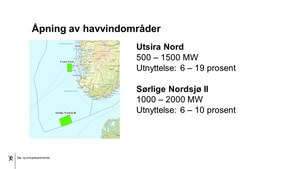
Of the two areas now selected, Utsira Nord is located on the southwest coast of the country (map on the left: Norwegian Government). Wind projects with a capacity of 500 MW to 1.5 GW could be developed there. The second area, Southern North Sea II, is located directly on the sea border with Denmark, which would facilitate a connection to the international electricity grid. Between 1 and 2 GW could be installed here.
Compared to onshore wind or solar plants, however, the prices for floating offshore plants are still very high. However, there are now various companies working on different technologies in this segment. In recent years, the conventional offshore wind industry has impressively demonstrated just how quickly costs can fall in commercial operations - especially as various countries around the world could benefit from floating wind turbines, as this Equinor chart shows:
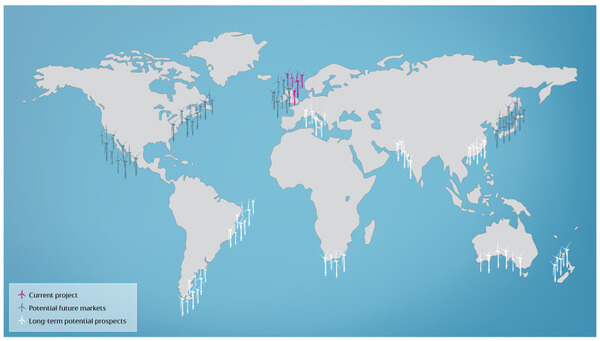
Norway therefore has the very best prerequisites for developing its own offshore wind industry.
- Author:
- Katrin Radtke
- Email:
- press@windfair.net
- Keywords:
- Norway, offshore, wind industry, floating, Hywind, Scotand, Equinor, development, turbine, wind farm


